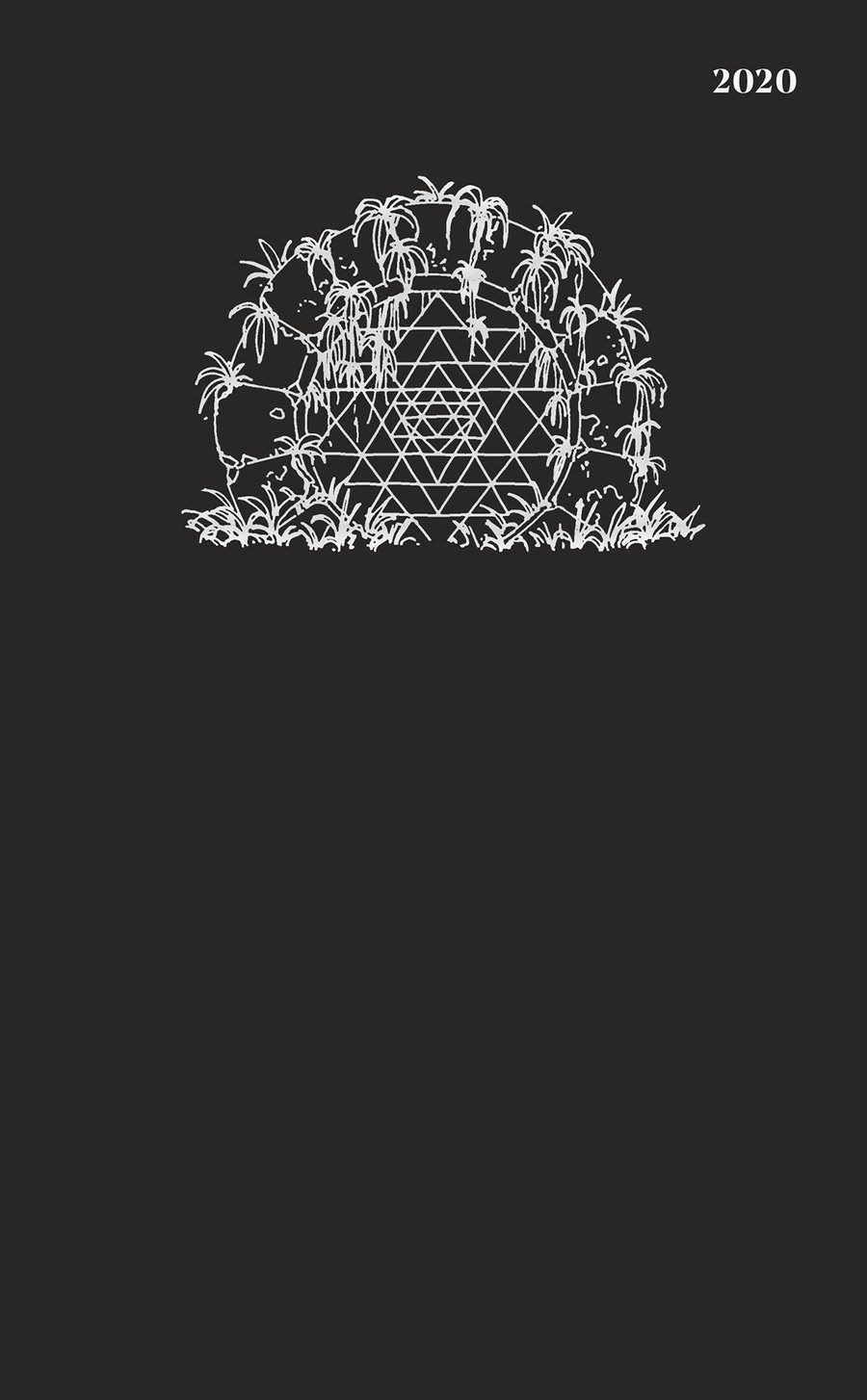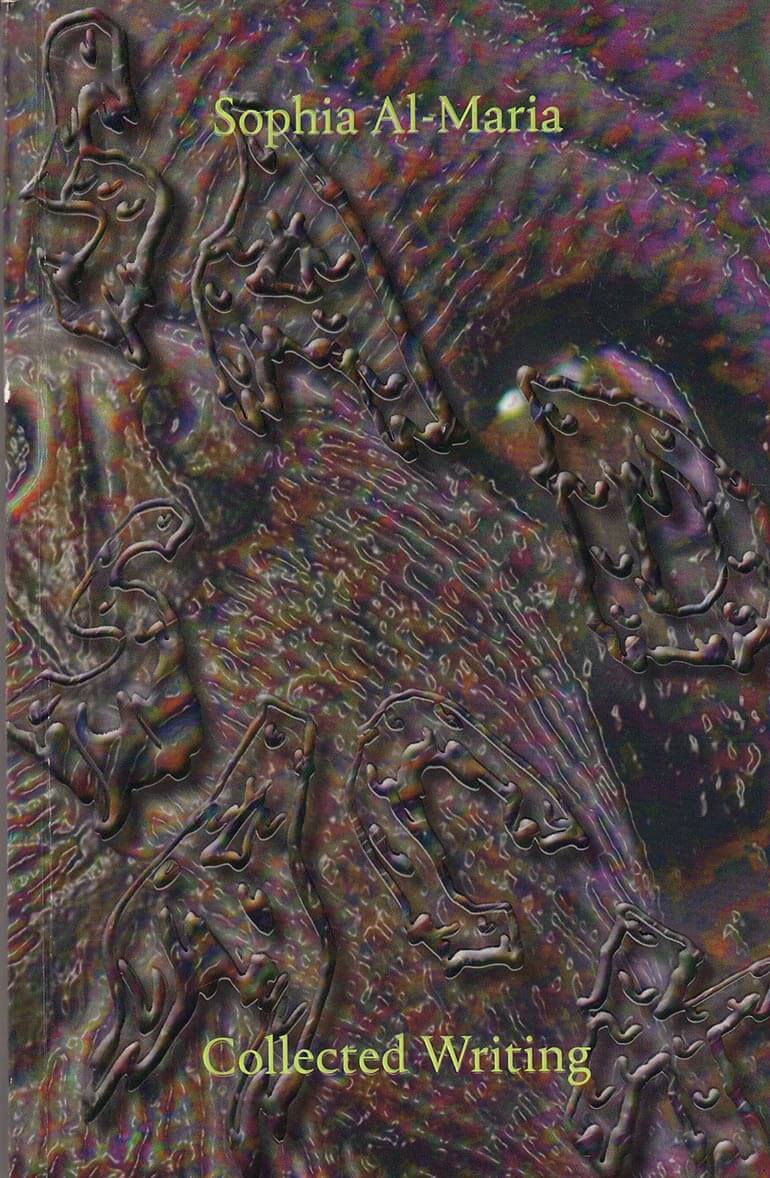Ursula K. Le Guin
Ursula K. Le Guin
And more

Ignota Diary 2020
The Ignota Diary is a tool for discovery in the practice of everyday life. This beautifully designed diary and week-to-view planner is filled with historically significant magical and sacred dates from around the world. Drawn from events such as the Buddha’s birthday, esoteric festivals and artistic and occult history, the diary touches on the lives of characters such as Ursula K. Le Guin, Zora Neale Hurston, Carl Jung, Simone Weil, Aleister Crowley, George Bataille, Timothy Leary, Hilma af Klint, Saint Hildegard of Bingen, William Blake and W.B. Yeats.
The diary provides full astrological navigation for 2020 with an overview of the year, a birthchart template and guides to moon magic, houses, planets and symbols. Key transits, retrogrades and lunar phases, noted throughout the planner, allow you to organise your life in alignment with the astrological weather, visible at a glance. A global map showing sacred sites provides inspiration for transformative pilgrimages.
Rituals by the acclaimed artist Jesse Darling and poets CAConrad, Bhanu Kapil and Nisha Ramayya and seasonal tarot spreads by practitioners including adrienne maree brown and Rachel Pollack, author of the bestselling tarot guide 78 Degrees of Wisdom, offer guidance and space for reflection throughout the year. Additional sources of inspiration include guides to Soji cleaning by Zen monk Shoukei Matsumoto, author of the bestseller A Monk's Guide to a Clean House and Mind, and guided meditation by Julian Vayne of the Psychedelic Museum.
To support a holistic approach to health and wellbeing, an appendix contains guides to healing herbs, key acupressure points, the chakra system and Ayurvedic medicine, as well as a directory of key magical places, shops and websites

Second Sex War
Sidsel Meineche Hansen, Robert Leckie
Stemming from a series of works by Sidsel Meineche Hansen, this monographic catalogue offers a range of perspectives on urgent issues around gender, sexuality and labour in the digital age.
This book orbits “Second Sex War”, a series of works by Sidsel Meineche Hansen addressing political and ethical questions arising from the use of digital bodies in contemporary visual culture and the means of production and distribution for these commodities. Realising that the same avatars are used across the pornographic, gaming and cultural industries, she investigates the working conditions and relationships that structure these fields. Through numerous essays and conversations, Second Sex War, the book, emphasises her collaborations with various practitioners (animators, musicians, writers) and the way they have inflected her practice. Media theorist Helen Hester (author of the Xenofeminist manifesto) reflects on the limitations of the porn industry and the use of female avatars. Artists collective Radclyffe Hall talks to photographer Phyllis Christopher about early lesbian erotica magazine in the 1980s. Linda Stupart compiles quotes by Sara Ahmed, Kathy Acker and Ursula K. Le Guin to consider what is radical sex today. Artist Hannah Black's contribution, which opens the publication, reads like a manifesto for artists being crushed under the weight of current political circumstances.
Edited by Sidsel Meineche Hansen and Robert Leckie.
Texts by Robert Leckie, Hannah Black, Helen Hester, Phyllis Christopher & Radclyffe Hall, Linda Stupart, Josefine Wikström. Entretiens with Helena Vilalta, James B Stringer, Melika Ngombe Kolongo (Nkisi) by Sidsel Meineche Hansen.

Mother Reader
'My aim for Mother Reader has been to bring together examples of the best writing on motherhood of the last sixty years, writing that tells firsthand of the mother's experience.
Many of the writings in Mother Reader comment on and interpolate one another, in citations, in footnotes, in direct homage. As I was assembling this collection one text would lead to one another, treasure-hunt fashion, the clue provided by an acknowledgement or bibliography. And just as often the writing circles back.
In Mother Reader chapters are excerpted from autobiographies, memoirs, and novels; entries are lifted from diaries; essays and stories are culled from collections, anthologies, and periodicals. My project has been to assemble a compendium or sampler of these ''kindred spirit'' works on motherhood, so that readers, and especially mothers with limited time on their hands, can access in one volume the best literature on the subject and know where turn to continue reading." [Moyra Davey in the introduction]
Writings by Margaret Atwood, Susan Bee, Rosellen Brown, Myrel Chernick, Lydia Davis, Buchi Emeta, Annie Ernaux, Mary Gaitskill, Susan Griffin, Nancy Hutson, Mary Kelly, Jane Lazarre, Ursula K. Le Guin, Doris Lessing, Ellen McMahon, Margaret Mead, Vivian Montgomery, Toni Morrison, Tillie Olsen, Alicia Ostrker, Grace Paley, Sylvia Plath, Adrienne Rich, Sara Ruddick, Lynda Schor, Mira Schor, Dena Schottenkirk, Mona Simpson, Elizabeth Smart, Joan Snyder, Elke Solomon, Susan Rubin Suleiman, Alice Walker, Joy Williams, Martha Wilson, Barbara Zucker.

The Word For World is Still Forest
The Word for World is Still Forest creates a space for the reader-as-exhibition-viewer to consider how forests may be seen not only for their trees, but also how they can enable experiences of elegance, affirmation, and creation for a multitude of creatures. in response to their violent destruction, which characterizes the Anthropocene, these pages traverse various woodlands by way of their semiotic, socio-political, historical, and epistemic incitements in order to reveal how practices of care, concern, and attention also enable humans to inhabit and flourish in this world as forest. Taking its title from Ursula K. Le Guin’s 1972 novella, The Word for World is Still Forest curates an homage to the forest as a turbulent, interconnected, multinature. Moving from concepts of the forest as a thinking organism to the linear monocultural plantations that now threaten the life of global forests, the volume includes interviews, a photo essay, case studies, reflections, drawings, essays and more.
Contributors: Sandra Bartoli, Kevin Beiler, Shannon Castleman, Dan Handel, Katie Holten, Elise Hunchuck, Silvan Linden, Yanni A. Loukissas, Eduardo Kohn, Pedro Neves Marques, Abel Rodríguez, Carlos Rodríguez, Suzanne Simard, Anna-Sophie Springer, Paulo Tavares Etienne Turpin, Catalina Vargas Tovar

Sad Sack
Sad Sack is a book of collected writing by Sophia Al-Maria, taking feminist inspiration from Ursula K. Le Guin’s 1986 essay ‘The Carrier Bag Theory of Fiction’; opposing ‘the linear, progressive, Time’s-(killing)-arrow mode of the Techno-Heroic.’ Encompassing more than a decade of work, Sad Sack tracks Al-Maria’s speculative journey as a writer, from the first seed of her ‘premature’ memoir, through the coining and subsequent critique of ‘Gulf Futurism’, towards experiments in gathering, containing, welling up and sucking dry.
For me this book is a bag... Like any single-use carrier bag – I disapprove. It shouldn’t exist, it contributes to pollution, it should be banned... And yet, in spite of the fact I know this book may be a waste product... I’m still writing, redacting, expanding... I’m still waiting, wasting, wanting. According to Ursula, ‘It is a human thing to do to put something you want, because it’s useful, edible, or beautiful, into a bag.' – Sophia Al-Maria